As the days grow shorter and temperatures drop, many gardeners pack away their tools and assume their soil is resting until spring. But here’s the secret: winter is one of the most important times to feed and protect your garden. With the right use of compost, you can nurture your soil, safeguard your plants, and set the stage for abundant growth when the warmer months return.
We believe every season is a chance to reconnect with nature, and winter is no exception. Here’s how to make the most of compost during the colder months.
1. Mulch and Protect Your Soil
Bare soil is vulnerable in winter. Cold winds, heavy rain, and frost can strip away nutrients and damage the structure of your soil. By spreading a generous layer of compost over your beds, you create a natural blanket that:
- Locks in valuable nutrients.
- Prevents erosion and compaction.
- Encourages healthy soil microbes, even in cold weather.
Think of it as tucking your garden in for the season.
2. Boost Perennial Plants and Shrubs
Perennials, fruit bushes, and hardy herbs don’t disappear in winter. Their roots are still working below the surface. Adding compost around their base now provides slow-release nutrition that keeps them strong through the frost and ready to burst back in spring.
3. Enrich Your Vegetable Beds
If you’re resting your veg beds over winter, it’s the perfect time to enrich them. Spread a thick layer of compost and let nature do the work. By spring, worms and microorganisms will have incorporated it into the soil, creating a fertile foundation for planting.
4. Protect and Feed Winter Crops
Growing kale, winter lettuce, or garlic? Compost can give them the boost they need. Work a little into the soil before planting garlic cloves, or side-dress leafy greens with a light top-up to keep them thriving in the colder months.
5. Make the Most of Empty Pots and Containers
Don’t leave containers with bare soil exposed to the elements. Top them up with compost, or use the winter months to refresh tired potting mixes. This prevents leaching and ensures your containers are ready for spring planting.
6. Start a Winter Compost Pile
If you’ve got green waste from tidying the garden, winter is still a good time to compost at home. Though decomposition slows in the cold, it doesn’t stop. Layer kitchen scraps with fallen leaves and garden waste, and you’ll be ahead of the game come spring.
Final Thoughts
Using compost in winter isn’t just about protecting your garden. It’s about investing in its future. A few simple steps now can mean richer soil, healthier plants, and a more resilient garden when spring arrives.
Our peat-free compost is crafted to work with the rhythms of nature. Whether you’re mulching, enriching, or refreshing your soil, it gives your garden the nourishment it needs, season after season.
Your soil doesn’t hibernate in winter. Why should your compost?



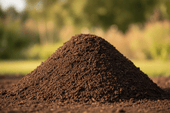



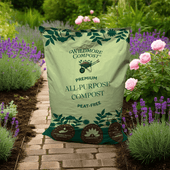
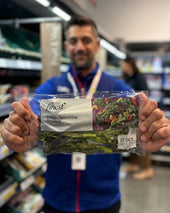
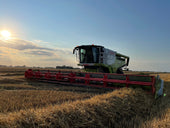







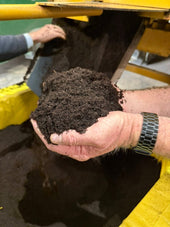



0 comments